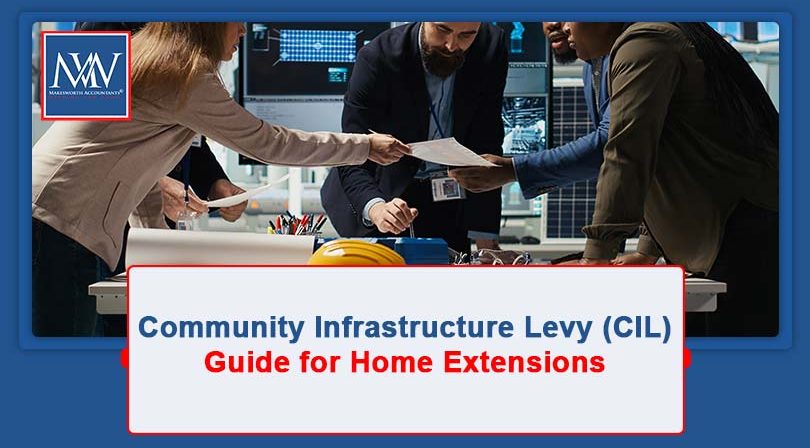
Community Infrastructure Levy (CIL) Guide for Home Extensions
What is the Community Infrastructure Levy (CIL)?
The Community Infrastructure Levy (CIL), often referred to as the “extension tax”, has recently become a concern for many homeowners. As highlighted by The Sunday Times, several property owners who extended their homes were surprised with large bills after unknowingly triggering the levy.
CIL is a charge that local councils can apply to new developments to raise funds for improving community infrastructure such as roads, schools, and parks. However, it only applies in areas where a local authority has officially adopted and published a CIL charging schedule. This means the charge does not apply everywhere, and where it does, rates may vary from one council to another.
When Does CIL Apply?
CIL may apply when a new building or extension adds 100 square metres or more of additional floor space. The charge is calculated per square metre, and rates depend on the local authority regulations.
While the levy applies broadly, some developments can qualify for exemptions.
Available CIL Exemptions
Not every construction project falls within the scope of CIL. Possible exemptions include:
-
Residential extensions and annexes
-
Self-build homes, flats or conversion projects
However, these exemptions are not automatic. To qualify, applicants must meet strict conditions and follow the correct process. Missing a step or submitting late paperwork could result in losing the relief and receiving a significant bill.
You Must Apply Before Work Starts
One of the most important rules is timing:
The exemption for extensions, annexes, and self-build homes must be applied for and approved before development work begins.
Applications cannot be made retroactively. Once construction has started, councils have full discretion, and in most cases, they do not cancel the charge.
Many homeowners only discover the levy after receiving a bill once the project is completed, by which time it is too late to claim relief.
Key Takeaway
Before starting any extension or self-build project, always check whether your local council charges CIL and whether you must apply in advance for exemption. A few minutes of research could save you thousands of pounds.
For more information, Book a Free Consultation
Need Accountancy Support?
For information on bespoke training, or if you have any other questions for Makesworth Accountant, please fill in your details below
















 151
151